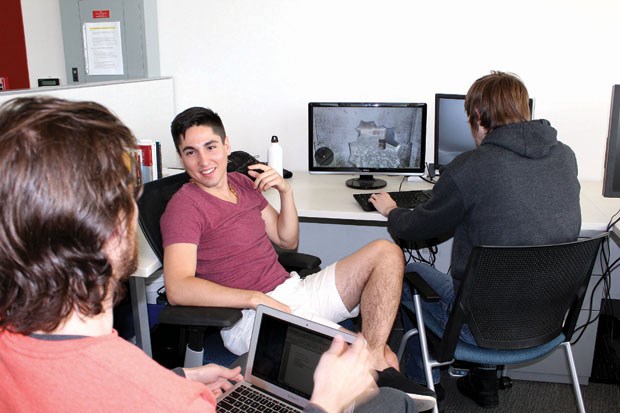As augmented reality continues to break through into every day life, UBC researchers are using similar technology to teach high school students about climate change.
The Future Delta video game, based on the community of Delta, lets players see a bleak future where little was done about climate change. Then, exploring challenges facing the Lower Mainland like floods, sea level rise, heat waves, fires, blackouts and people's energy choices, players take on the role of making a better future.
The video game has been four years in the making for the team at UBC.
"The game was developed and built with the help of the students and teachers. We tested it out in two high schools - Delta Secondary in Ladner and then North Delta Secondary," said UBC principal investigator Stephen Sheppard.
Sheppard said the team recently completed its research and evaluated the results of the testing from the students.
"Basically the results showed that the video game was fun for the students," he said. "They overwhelmingly preferred it to learning out of a textbook, so that was one goal we wanted to establish.
"They [the students] did also clearly learn quite a lot about climate change - basic concepts like mitigation and adaptation - but also how to see their local landscape a bit differently and how to see climate change in their local backyard. We were pleased with that. They certainly had some positives and negatives of the game and gave us some great feedback."
The Future Delta 2.0 team recently received seed funding from the Social Sciences Humanities Research Council to expand beyond the Delta School District to youth audiences across Canada, and hopes to create an app version for mobile devices.
"Given that it [the video game] has been so enthusiastically received by everyone and seems to be a successful way of getting youth engaged in climate change, we are now exploring how games like this could be spread around to other schools and school districts," Sheppard said.
"This is their future. These are the kids who will be living through the impacts of climate change. Right now they don't have a lot of good information, or what it will mean to them and their communities."
Sheppard said this video game could just be the start of a greater educational component. "There is lot of evidence that talks about the power of video games and these interactive and social media games," he said. "They obviously work pretty well, but the problem is they don't seem to be scaled up much or mainstreamed into education, so there is a gap and a barrier between developing these things and getting them embedded into schools.
"There are math games, climate science games, but ours is a bit more comprehensive and is very play spaced. The kids play in neighbourhoods. They recognize that it is a special twist that we feel makes our game unique. It takes time, but we have to find ways to make it really easy for teachers to use and for schools to adopt. One of the good things about the Delta school board is that they have been cutting edge in terms of developing different learning tools and helping kids to be more engaged. I think they are a leader in teaching in the region."


